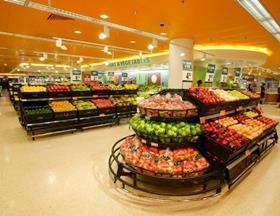
A China Central Television programme has claimed plastic film used by the country’s supermarkets to wrap fresh produce and other products may contain banned toxic plasticisers, the Shanghai Daily reports.
Testing discovered fifteen out of sixteen samples of the polyvinyl chloride plastic wrap contained bis(2-ethylhexyl) adipate (DEHA), some at “alarming” levels.
These banned substances are believed to have the potential to cause fertility problems.
The samples were purchased from stores in Shanghai, Beijing and Guangzhou, although specific brands or retailers were not named.
According to the television report, DEHA can only be identified when levels reach 0.05 per cent. The highest level of DEHA identified in the test was reported as 472 times that level.
China’s General Administration of Quality Supervision, Inspection and Quarantined banned this type of plastic wrap in 2005 after it was determined the banned substance can leak out and penetrate the food, particularly products with high fat levels.
Higher costs are thought to be the driving factor behind the ongoing use of the banned plastic film.The price of raw materials to manufacture DEHA-plastic wrap is RMB8,000 (US$1,305) per tonne compared with RMB12,000 (US$1,957) for types containing dioctyl adipate (DOA), which is permitted under Chinese safety standards.
Xu Xiaofeng, a business manager at the Tongxiang company interviewed on the television report, admitted it used DEHA as a raw material for plastic wrap due to its lower cost.



